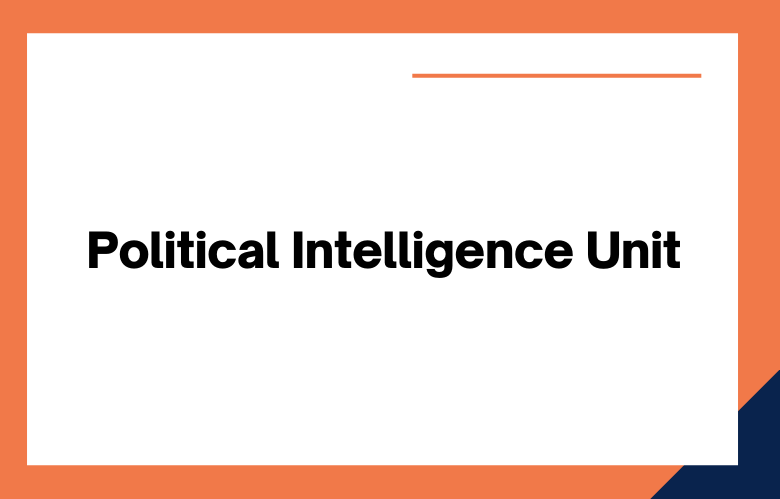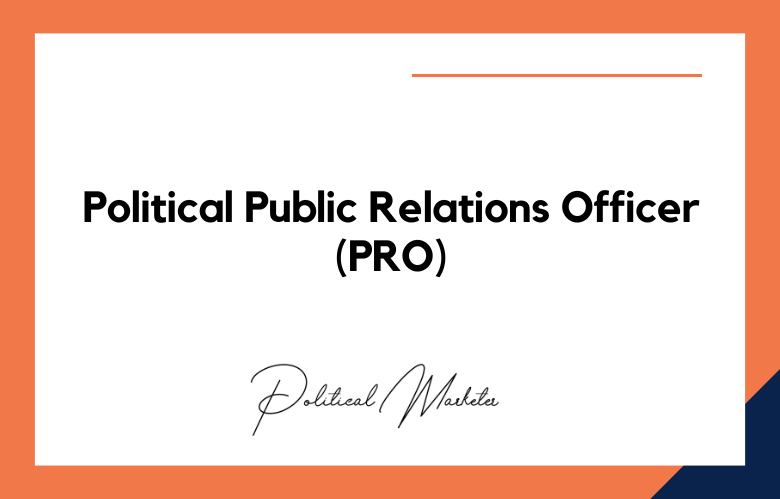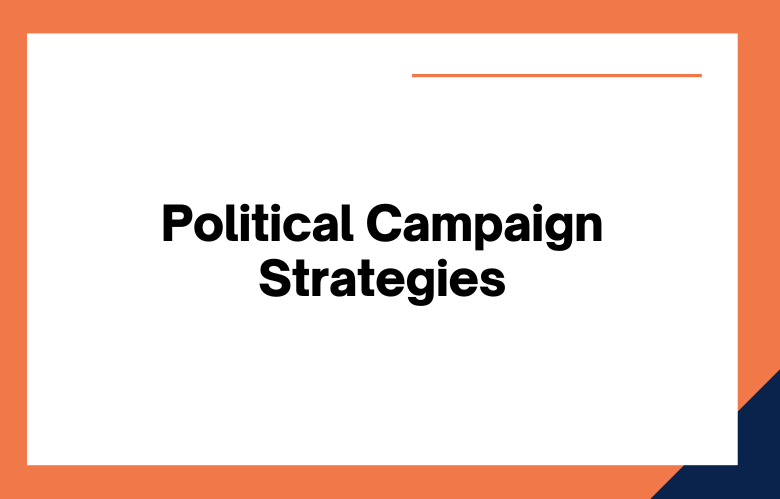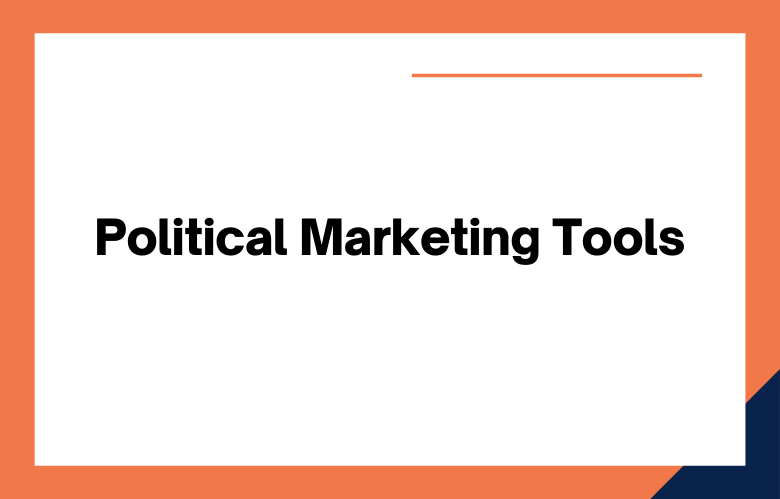Developing a Political Intelligence Unit (PIU) is essential for any organization with political interests. Whether you are a campaign, think tank, or corporation, having dedicated resources to track and analyze politics is critical for success.
We will outline the basics of setting up a PIU and discuss some critical activities it will undertake. We also highlight some benefits of having a well-run PIU if you want to improve your organization’s understanding of politics and gain a competitive edge.
Knowledge is power. This adage rings especially true in the political world, where even the slightest advantage can make all the difference on election day.
Political campaigns are always looking for ways to gain an edge over their opponents, and the only method to do that is by developing a political intelligence unit. We’ll outline what a political intelligence unit is and set one up. Stay tuned – it will be a race to the finish line!
What is Political Intelligence?
Political Intelligence is information about the government, political groups, and other key players. It includes policy documents, legislation, funding requests, and political events.
Political Intelligence is a form of Intelligence that helps decision-makers make the right decisions in an environment with few facts.
Political Intelligence gathers and analyzes information about governments, leaders, policies, and political parties.
Political Intelligence is the service that lets you know what is happening in your city.
Political Intelligence is the gathering of information about political events around the world. A piece of information that might be important for an investor to know could include a change in leadership, economic growth or lack thereof, and social movements.
What is a Political Intelligence Unit?
A Political Intelligence Unit is an expert group that analyzes global political affairs and events. They gather information from news sources, governments, think tanks, academic institutions, international organizations, and other private companies to provide actionable analyses and forecasts on emerging crises.
A political intelligence unit is a team that gathers information about international relations, typically from public sources.
The Political Intelligence Unit is an intelligence agency responsible for collecting, analyzing, and disseminating information on the country’s internal politics.
A Political Intelligence Unit is a department that gathers information about politicians and their policies.
A political intelligence unit is a branch of the government that gathers information on what’s going on in other countries and gives this information to the leaders.
A political intelligence unit is a group of people that gather information on the government, companies, and other organizations.
Political Intelligence Unit Best Practices
- Keep up to date on current events.
- Read the latest intelligence reports from other countries
- Analyze all available data and information before making a decision, including but not limited to economic, military, political, diplomatic, and social media analysis
- Monitor your security at all times- do not disclose sensitive information via email or phone call
- Understand the company’s mission and goals
- Analyze data to provide strategic insights into political trends
- Identify potential threats and opportunities for the organization
- Offer a variety of intelligence products to meet customer needs
- Provide information promptly so it is relevant, accurate, and actionable
- Develop a list of the most important issues to follow
- Keep up with current events to stay informed about what’s happening in politics
- Be aware of how your personal biases might influence your analysis- try not to let them affect decisions too much
- Consider alternative viewpoints when making decisions, even if they’re unpopular opinions.
- Analyze the political climate of your country
- Determine what information is necessary for you to collect
- Gather Intelligence from various sources (social media, public records, etc.) and analyze it for patterns or trends
- Report findings back to your organization
Party Political Intelligence Unit Best Practices
- Establish a clear mandate
- Maintain objectivity and impartiality
- Collect information through a variety of sources
- Analyze data objectively
- Disseminate information in an accurate and timely manner
- Protect the identity of informants
- Follow up on leads
- Maintain confidentiality
- Establish a baseline of understanding of the political landscape in your area.
- Develop relationships with key people in each party
- Collect information on campaign strategies and tactics
- Analyze voting trends and identify critical demographics
- Monitor the media for coverage of your candidates and issues
- Prepare reports on your findings to share with clients
- Stay up to date on changes to the law that could impact your work
- Establish a team of analysts to research the political landscape and develop insights
- Use data analytics to understand voting patterns and identify critical demographics
- Create targeted marketing campaigns based on the findings of your research
- Develop relationships with key figures in the political world
- Stay up-to-date with current events and news stories
- Produce regular reports and briefings for internal stakeholders and clients
- Hold workshops and training sessions for team members
- Evaluate performance regularly and make changes where necessary
- Establish a clear mandate
- Maintain strict political neutrality
- Operate with integrity and accountability
- Respect the privacy of individuals
- Cooperate with other agencies where appropriate
- Conduct research in an ethical manner
- Report findings objectively
- Disseminate information on time
Conclusion
The Political Intelligence Unit is a powerful decision-making tool to help your business or organization make data-driven decisions. Our expert team enables you to develop a PIU for your specific needs. Contact us today to learn more about how we can help you make brighter, faster decisions using political Intelligence.
Political Intelligence Unit: How to develop a political intelligence for making data-driven decisions – FAQs
What Is A Political Intelligence Unit
A political intelligence unit is a specialized team or division that collects, analyzes, and interprets political data to guide campaign strategy, messaging, and outreach.
Why Is Political Intelligence Important In Modern Campaigns
It provides real-time insights on voter behavior, opposition tactics, media narratives, and public sentiment, enabling data-driven decision-making.
What Are The Core Functions Of A Political Intelligence Unit
Core functions include sentiment analysis, opposition research, media monitoring, demographic profiling, constituency analysis, and narrative tracking.
How Does A Political Intelligence Unit Support Campaign Strategy
It informs targeting, messaging, content creation, crisis response, voter mobilization, and overall strategic planning by delivering actionable insights.
Who Typically Operates Within A Political Intelligence Unit
The unit includes data analysts, political researchers, media monitors, content strategists, tech specialists, and campaign consultants.
What Tools Are Used By Political Intelligence Units
Common tools include data visualization software, AI-based sentiment trackers, CRM platforms, survey engines, media analytics tools, and GIS mapping software.
How Does Media Monitoring Help Political Intelligence
It tracks how candidates, parties, and issues are being covered in traditional and digital media, helping campaigns adjust messaging and counter narratives.
Can Political Intelligence Predict Election Outcomes
While not foolproof, political intelligence improves forecasting accuracy by identifying emerging trends, voter shifts, and campaign vulnerabilities.
How Does Opposition Research Fit Into Political Intelligence
It involves gathering data on rival candidates’ positions, past statements, scandals, or weaknesses to craft effective counter-messaging or debate prep.
What Is The Role Of Real-Time Data In Political Intelligence
Real-time data helps campaigns react quickly to events, voter mood swings, and social media trends, ensuring agility and relevance in communication.
Is Political Intelligence Only Useful During Election Seasons
No, it’s also valuable for issue advocacy, public policy influence, party positioning, and maintaining long-term voter relationships between elections.
What Is Sentiment Analysis In Political Intelligence
It uses natural language processing and AI to analyze how voters feel about a candidate, issue, or message across social media and news platforms.
How Does Political Intelligence Enhance Voter Targeting
It segments voters based on geography, demographics, behavior, and concerns, allowing campaigns to tailor messages for maximum impact.
Can Political Intelligence Be Used For Crisis Management
Yes, it helps identify narrative shifts, misinformation, and potential PR threats early so campaigns can act swiftly to manage the fallout.
What Is Narrative Tracking In Political Intelligence
It involves following how certain themes or storylines evolve across media and public discourse, enabling campaigns to stay ahead or reshape the narrative.
How Do Political Intelligence Units Collect Grassroots Feedback
They use digital surveys, field reports, WhatsApp groups, call center transcripts, and constituency-level feedback loops.
Is Political Intelligence Ethical And Legal
Yes, when conducted transparently and with data from public or consent-based sources. Ethical lines are crossed when it involves illegal surveillance or misinformation.
What Is The Difference Between Polling And Political Intelligence
Polling is one method within political intelligence. Intelligence also includes qualitative research, behavior tracking, content analysis, and ongoing feedback monitoring.
How Can Small Campaigns Benefit From Political Intelligence
Even lean teams can use affordable tools like Google Trends, social listening, and voter files to gain basic strategic insights.
What Are The Long-Term Benefits Of Having A Political Intelligence Unit
It builds institutional memory, supports continuous voter engagement, improves response time to crises, and enhances campaign ROI over multiple election cycles.
One way to get in touch is by filling out our online form on this site or give us a call at
+91 9848321284. Let’s work together today!










